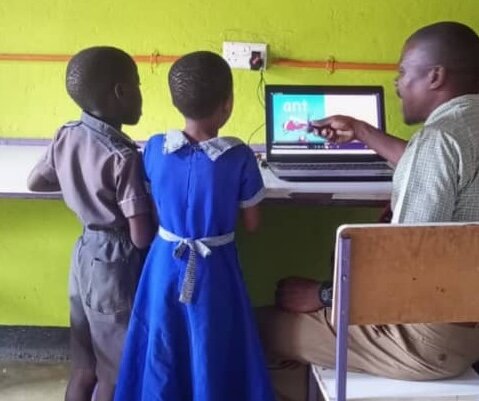By Natalie Conti | Project Director
GlobalGiving Report Term 3 (April - July 2024)
Final Report – Primary Literacy, Malawi
UNESCO Malawi Factsheet 2022: The Foundational Learning module assesses skills at the Grade [Year] 2/3 level. However, only 12% of children who have Grade 3 as the highest grade attended have the expected reading skills for that grade, while 4% of children have the expected numeracy skills. In Malawi, overall, 19% of children aged 7 to 14 have foundational reading skills and 13% of children aged 7 to 14 have foundational numeracy skills. Children from the bottom 60% of the wealth distribution are overrepresented in those who are not learning. In total, they make up around two-thirds of the children who do not have foundational reading or numeracy skills.
https://data.unicef.org/wp-content/uploads/2022/12/2022Malawi_Factsheet_InDesign-FINAL-2.pdf
Supported by our gererous donors CharChar is dedicated to supporting Malawian teacher and learners to eradicate 'learning poverty'. Every child has a right to be literate.
Executive Summary
The final term of the 2023-2024 academic year marked significant achievements for the CharChar Literacy Teaching Team at Tsokamkanansi Demonstration School in Lilongwe, Malawi. The Literacy Specialist Teachers (LSTs) successfully concluded the year's program with demonstrable improvements in learner literacy skills across all participating classes as can be seen in the graph of children’s scores (please see photographs for results chart)..
Key Achievements
Three-quarters of learners across all classes demonstrated strong mastery of letter names and sounds, including the Standard 1 children who showed impressive capabilities in segmenting and blending sounds to read words. The programme's impact extended beyond dedicated literacy sessions, with learners successfully applying their phonics knowledge to subjects in both Chichewa and English.
Teaching and Learning Strategies
Our LSTs maintained provision of high-quality instruction through:
- Comprehensive review of challenging content from previous terms
- Emphasis on oral language practice
- Integration of play, songs, and games in learning activities
- Strategic use of teaching resources to enhance vocabulary development
- Implementation of end-of-term assessments
Community Impact
The program's success has been recognized by veteran teachers, staff members, and by parents and guardians who have witnessed major improvements in learner performance. Stakeholder validation, alongside the children’s results, reinforces the value of the foundational literacy intervention.
Key challenges during the year:
- Learner turnover due to domestic worker families’ relocating
- Initial resistance from some in-service teachers
- In-service teacher absenteeism affecting small group activities
- LST motivation impacted by economic factors including currency devaluation
- The university was unable to schedule continued student-teacher training by the CharChar Senior Education Officer due to scheduling issues.
Looking Forward
This project has demonstrated the teaching and learning model’s success, and now needs to be scaled up, requiring a major partnership and targeted and full funding.
Based on this year’s experience, we would consider several strategic components in a next phase:
- Continued support from local stakeholders
- Expansion to multiple schools to enable broader impact on children and teachers
- Enhanced professional development for in-service teachers
- Coordination with primary teacher-training institutions
- Revised literacy specialist teacher recruitment and compensation structure
- Development of video materials to support pre-service and in-service teacher professional development
As highlighted by our Senior Education Officer, Andrew Mchisa, the programme has shown remarkable success in addressing fundamental literacy challenges. Many children in Malawian primary schools struggle with knowledge of alphabet letter names and the corresponding letter sounds, leading to poor outcomes in reading especially when they reach Standard 5 and the language of instruction for all subjects is in English. Our achievements with the children under this project are therefore particularly significant, as these children are now sufficiently skilled to take advantage of the education available to them.
Acknowledgments
We extend our gratitude to our dedicated LSTs, in-service teachers, and the Tsokamkanansi school community. Special thanks to Andrew Mchisa for his leadership in implementing and documenting this successful programme year.
Your continued support through GlobalGiving enables us to combat learning poverty and improve educational outcomes for Malawian children.
Thank you for being an important part of this transformative journey.
Project reports on GlobalGiving are posted directly to globalgiving.org by Project Leaders as they are completed, generally every 3-4 months. To protect the integrity of these documents, GlobalGiving does not alter them; therefore you may find some language or formatting issues.
If you donate to this project or have donated to this project, you can receive an email when this project posts a report. You can also subscribe for reports without donating.
Support this important cause by creating a personalized fundraising page.
Start a Fundraiser





